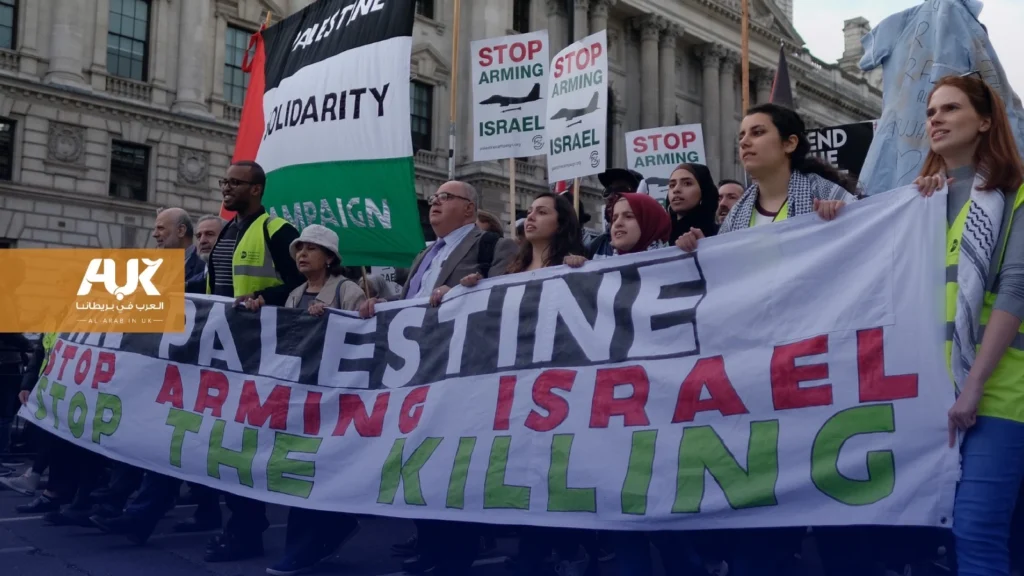Between Fire and Steel: Did Gaza Triumph?

“Calamities have rained upon me, such that if they
Had fallen on the days, they would have turned to nights.”
No sooner had the war come to a halt than pens were drawn, and voices rose in dispute. Some declared it a clear victory, a moment of honour and empowerment, drawing parallels with the Algerians’ struggle for liberation. Others countered that today is not like yesterday—Algeria’s vast Sahara, with its plains and plateaus, offered its people strategic depth, not to mention the boundless support of Gamal Abdel Nasser and his unwavering commitment to the revolutionaries of the time.
Gaza, on the other hand, has been encircled from all sides, abandoned to the lowest of the low, while the forces of oppression and tyranny conspired against it from afar.
Those who raised the banner of dissent, blaming decision-makers for the loss of life and arguing that they had abandoned the Prophetic wisdom of Hudaybiyyah, where the Messenger of Allah (peace be upon him) chose peace to preserve lives, were swiftly denounced as heretics. Their critics claimed they had read history but failed to grasp its essence—for the Prophet (peace be upon him) negotiated from a position of strength. More importantly, his struggle was offensive in nature, while Gaza’s battle is one of defence. How then, they asked, can the two be equated?
Though my heart remained with the first camp, I found myself lingering at the threshold of uncertainty, pondering the arguments of the other side. Yet in the end, clarity prevailed, and the unmistakable truth called out to me: “Peace be upon you, you have done well.”
And so, I sought out the wisdom of scholars and the insights of those well-versed in the art of war and politics—those whom we hold in high regard without attributing to them infallibility—hoping to bring forth a guiding light or a spark of understanding.
Laying the Foundations of Debate

Before we argue over whether this was a victory or a defeat, let us first establish the criteria of victory and the conditions of defeat.
The same principle applies to all matters. Before one casts doubt on Imam al-Bukhari’s authenticity, or claims that not every hadith in his Sahih is a verbatim statement of the Prophet (peace be upon him) simply because he was human, the real question that must be asked is: What makes a hadith authentic? Only after defining this can an assessment be made.
Similarly, before we declare a war won or lost, we must ask: What defines victory?
On this, I find no words more illuminating than those of Dr Naif bin Nahar, whose insight, in my view, is as essential as sunlight to the world and rain to barren land. He writes:
“You cannot judge an experience as a success or a failure unless you first agree on the standard by which you are measuring it. One person may sacrifice everything to attain a certain position and, upon reaching it, consider themselves successful—because to them, success is defined by arrival alone. Another may view the same scenario as a failure, because their measure of success is maintaining dignity and self-respect.
“Thus, differing standards lead to differing judgements.”
Apply this principle to Operation Al-Aqsa Flood—your judgement of it depends on the lens through which you view it. Those who criticise the operation do so based on cost—they argue that because the price in human lives was high, the action must have been a mistake.
Dr Naif continues:
“But the cost metric is not always valid. Proof? Everyone celebrates the Syrian revolution as a victory, even though its toll was many times higher than that of Gaza. People take pride in the Algerian revolution, which was exponentially more costly than Gaza’s. The Soviet Union is considered victorious in expelling the Nazis, despite losing twenty million people in the process!”
“If we judge solely by cost, then logically, if Israel were to occupy any Arab country, no one should resist—because resistance would carry a heavy toll in lives. This would leave us with only one option: surrender.”
“Why do we speak of the cost of war but not the cost of peace? The West Bank has lost over 40% of its land in the name of peace, and 800,000 Zionist settlers have occupied it under that same banner. Why is the cost of war always weighed, yet the cost of peace is evaded?”
“Does this mean cost is irrelevant? No, it is crucial. But it must be weighed alongside another factor: feasibility. If suffering a cost yields no strategic gain, it is mere recklessness. But was Operation Al-Aqsa Flood effective in exhausting the Zionist entity?”
“This is where our discussion should lie. Personally, I believe it was highly effective, and we can cite dozens of reasons for this. Even the Zionists themselves have admitted to many.”
“But the core achievement, in my view, is that the operation set Israel on a trajectory of decline. When the resistance strikes deep into Israel’s security fabric—triggering the largest migration in its history—and when, despite Israel mustering all its military might with absolute Western support for over a year, the resistance emerges unbroken, cohesive, and standing firm, as though the war had lasted but a fleeting moment—then that is a decisive blow to Israel’s will to survive and its military’s will to fight.”
“And when both the will to survive and the will to fight are struck, then Israel is, in practical terms, in freefall from its peak.”
Defining Victory

The strongest argument has been made; now, let us assess victory through its defining measures:
1. Victory Through Steadfastness
For us as Muslims, victory is an eternal concept, not merely a worldly one. Holding firm to principle in the heat of battle, even at the cost of one’s life, is the command we have been given. Allah praised the People of the Trench (Ashab al-Ukhdud), though they were massacred to the last:
“And that is the great triumph.” (Qur’an 85:11)
2. Victory Through Resistance, Not Submission
When the followers of Talut hesitated, saying:
“We have no strength today against Goliath and his soldiers,”
the Qur’an responded:
“How many a small group has overcome a large group by Allah’s permission!” (Qur’an 2:249)
Seeking safety at the price of submission can be the greatest loss. The same logic applied when the army of Yazid ibn Mu’awiya laid siege to Constantinople—Muslims catapulted one of their warriors into the enemy ranks. Some accused them of recklessness, citing:
“Do not cast yourselves into destruction with your own hands.” (Qur’an 2:195)
But Abu Ayyub al-Ansari, the Companion of the Prophet (peace be upon him), corrected them:
“You misinterpret this verse. It was revealed about us—the Ansar—when we considered staying behind to tend to our wealth instead of fighting. The true meaning is that destruction lies in abandoning resistance, for if the enemy prevails, he will subjugate us and strip us of our freedom.”
3. Victory Through Denying the Enemy Its Goals
Netanyahu and his war council declared that resistance would be eradicated. They assured the families of hostages that they would be freed in mere hours. Those hours turned into weeks, then months. The world watched as Israeli forces dragged their wounded and mourned their dead—their arrogance shattered.
To deny the enemy its objectives despite overwhelming military superiority is, in itself, a victory.
4. Victory Through Survival
Military strategist Fayez al-Duwairi explains that in asymmetric warfare, if the weaker party endures, it has won. The Americans in Vietnam, the Algerians against France, and the Egyptians against British colonial rule all proved this.
As Henry Kissinger himself admitted:
“The guerrilla wins if he does not lose. The conventional army loses if it does not win.”
Thus, let those who disagree bring forth their proof—if they are truthful.
Read More:
ShortURL ⬇

